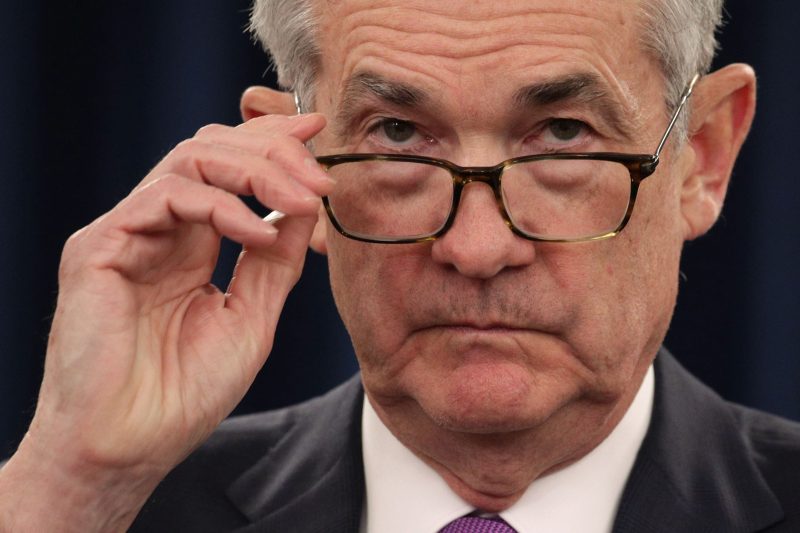Fed opens meeting torn between strong growth, no inflation
Fed Chairman Jerome Powell will announce the central bank’s decision on Wednesday (ALEX WONG)
Washington (AFP) – The US central bank opened its third policy meeting of the year on Tuesday and is universally expected to sit tight as it grapples with conflicting signs on the economy.
Federal Reserve Chairman Jerome Powell will announce the decision on the benchmark interest rate on Wednesday but officials have signaled clearly that they have no intention of moving monetary policy anytime soon.
Economists and investors will look for any hint in the statement of how central bankers are feeling about the economy and what their next move might be: a hike or a cut.
On the one hand, the US economy grew 3.2 percent in the first three months of the year, a surprising result given the signs of slowdown in the final months of 2018 that caused financial markets to seem panicked for a time.
But on the other, in defiance expected behavior in a growing economy with low unemployment, the key measure of inflation continues to fall further below the Fed’s 2 percent target.
After raising rates four times last year — and a total of nine times since December 2015 — in order to get ahead of expected inflation, the rate-setting Federal Open Market Committee now must evaluate the crosscurrents in the economic data, at the same time as it is feeling political pressure from President Donald Trump to cut rates.
“Growth in the first quarter blew past expectations but the headline 3.2 percent gain in GDP vastly overstates the economy’s strength,” Bob Schwartz of Oxford Economics said in a recent analysis, echoing the view of many economists.
Without a rebound in spending and business investment, there is little chance the US economy will accelerate and push wages and prices higher.
Some economists now predict the Fed’s next move will be a rate cut, probably next year.
But if Trump continues to browbeat the Fed in public comments, the central bank may feel obliged to dig in just to prove their independence.
Diane Swonk, chief economist at Grant Thornton, said much of the blame for the financial market turmoil and economic slowdown last year “may be traced to the administration’s own threats of a full-blown trade war with China.”
And US companies report the trade frictions are causing them to delay investments and hiring.
“That doesn’t mean the administration won’t continue to openly blame the Fed,” Swonk said in a commentary. “The best that Powell can do is to stay the course and keep his noise-cancelling headphones charged to focus on where we are economically, not politically.”
Disclaimer: Validity of the above story is for 7 Days from original date of publishing. Source: AFP.


